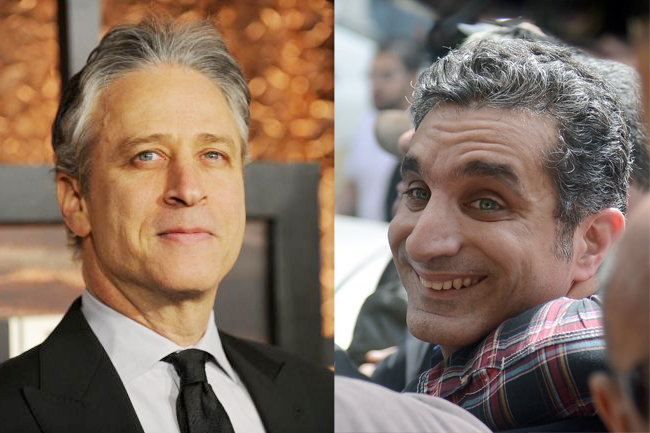CAIRO: Experts say Egyptian Shias today face a lot of challenges living and practicing their faith freely in a country that spent a significant part of its history under Shia rule.
Osama Hammad, professor of Islamic history at Alexandria University, explained to Daily News Egypt that Egypt was a Shia country when it fell under the Shia Fatimid caliphate, in opposition to the Abbasid caliphs in Baghdad at that time, who were Sunni Muslims.
“Many historians are yet undecided about whether or not the general public adopted Shiism during the Fatimid rule, some claim it was only the ruling class that was Shia, but no one can deny the fact that much of what we call Egyptian customs can be traced back indeed to the Fatimid era,” he said.
It is hard to miss the Fatimid legacy that is apparent on the streets of Cairo. Moreover, but many of this era’s traditions are still practiced.
Shia practices such as celebrating Al-Mawlid Al-Nabawy (the Prophet’s birthday), Ashura (commemoration of Al-Hussein’s death), and even using lanterns during Ramadan are still common among Egyptians today.
However, present-day Egypt regards itself as a Sunni country, with no accurate statistics on the number of Shias in Egypt.
While some studies place the number of Shias in Egypt at 800,000 people, Ahmed Rasam El-Nafis, university professor and prominent Shia writer, argues that the number is much higher than official records show.
He estimated the Shias in Egypt to constitute over 2 million of the population.
“For decades, the Egyptian regime has dimmed the Shia’s sense of belonging, we are constantly targeted by security forces in the same way they clamp down on journalists, Christian rights activists as well as the Muslim Brotherhood,” El-Nafis told Daily News Egypt.
El-Nafis, who converted to Shiism during the 80s, said that earlier this week, he was denied a visa to Iran. He told Daily News Egypt that security officials refused to allow him to spend a week in Tehran upon an invitation from Iranian scholars to discuss religious matters.
Government crackdown
Several local and international human rights organizations slammed in their annual reports on civil society the constant prosecution of the Shia minority.
In its 2009 report, the Ibn Khaldoun Center for Development Studies said that Shias remain controlled and deprived of their safeguarded rights as a religious group. It cited the arrest of 306 people on charges of “undermining national security and contempt of religion.”
El-Nafis admitted that there has been a “certain allure” to Shiism in recent years, which is pushed the Egyptian government to be increasingly aggressive towards what it perceived as the “rising Shia tide” in the region.
“On several occasions, Egyptian state-owned media waged campaigns against Shiism and Shia symbols,” he told Daily News Egypt.
“The Egyptian regime’s differences with Shia are more likely to be geopolitically than religiously motivated; leaking false accusations of Shia organizations trying to spread Shia teachings in Egypt under Iranian influence is a type of propaganda,” he said.
Professor of Political Science at Helwan University Gehad Auda said that the regime’s concern with Shias stems from the structure of the Shia community throughout the region, which has historically been very organized.
“Egypt as a political system doesn’t like organized communities of any sort outside the official authority,” Auda noted. “The status of the Shia in particular is a sensitive issue with the government, because they have always been regarded as having an autonomous authority outside the state wherever they exist.”
“Iran does not have any kind of influence over us," Saleh El-Wardani, Shia scholar, said. "Everybody must know that Shiism is not originally an Iranian ideology, it is an Arab sect in the first place,” he added.
Shias account for an estimated 10–15 percent of the Muslim population, around 200 million worldwide.
Iran for example is overwhelmingly Shia (89 percent), in Iraq they constitute 63 percent of the population, in Lebanon they’re at 35 percent, and Yemen at 45 percent. In Saudi Arabia, Shias only constitute 5 percent of the population.
Historians note that Shiism dwindled in Egypt in the mid-12th century with the crumble of the Fatimid era.
Sunni vs Shia
Farouk Qassem, professor of theology at Al-Azhar University, told Daily News Egypt that Sunnis and Shias agree on the core fundamentals of Islam and recognize each others as Muslims, but Shia holds slightly different beliefs about Prophet Mohamed’s family and certain individuals among his descendants, known as Imams, to have special spiritual and political authority over the community.
“While some conservatives disagree, the primary differences center on doctrine, not the five pillars of the faith, for example they believe that Ali, the Prophet’s cousin and son-in-law, was the rightful successor and thus reject the legitimacy of the first three caliphs, but they never deny prayer or Hajj,” Qassem said.
Sayed Alkamel, a 32-year-old Shia doctor, told Daily News that it is very difficult being Shia in Egypt. “We as Shias suffer from many misconceptions about us; people keep asking if we have another version of the Quran, or believe that Ali is a divine character, which is all untrue myths,” he said.
“At first I was so reluctant to reveal my true faith, but Egyptians in general are not hostile towards Shia, actually many of the rituals observed by Sunnis in Egypt, such as the visiting of the shrines of Al-Hussein, Zeinab and others, are actually very similar to those of Shia practices,” Alkamel added.
Efforts by Al-Azhar to bridge the gap between the various schools of thought have done little to reconcile Shia and Sunni ideologies. Sheikh Mahmood Shaltoot, head of Al-Azhar University in 1959, issued a fatwa recognizing the legitimacy of the Jafari School of Law to which most Shias belong.
The institution also established a center named the "Center for bringing together the various Islamic schools of thought” that brought together several Sunni as well as Shia scholars.

